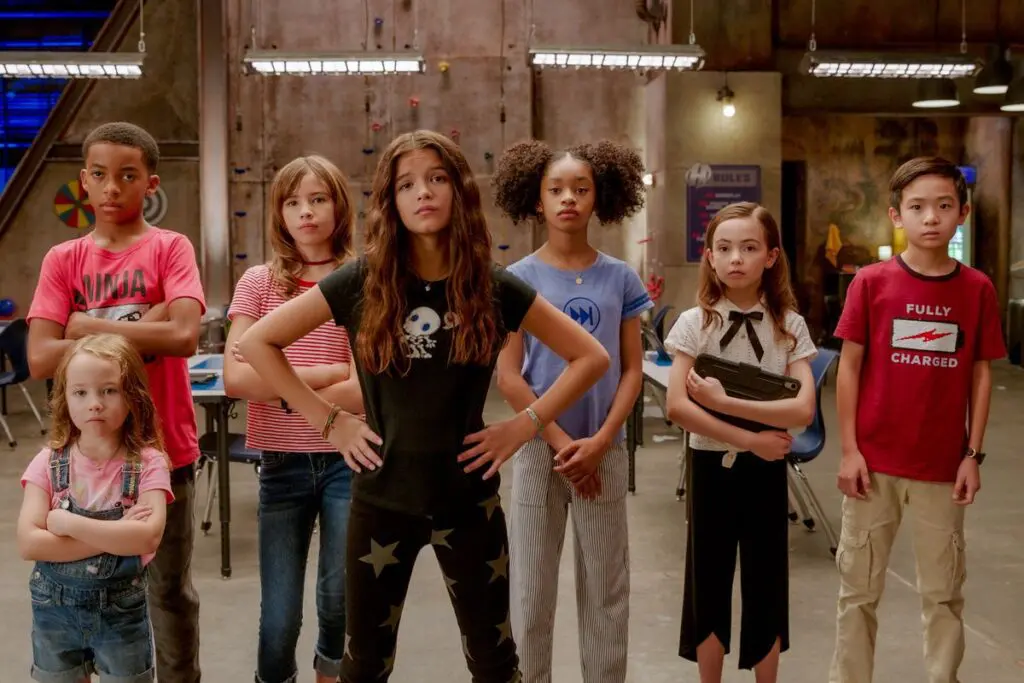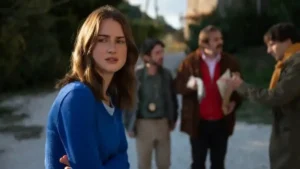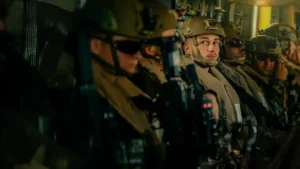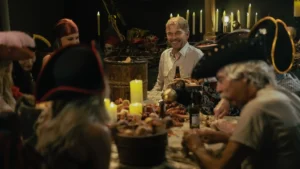Summary
Robert Rodriguez delivers another charmingly earnest and refreshingly inclusive family-friendly action film in the colourful We Can Be Heroes.
Written and directed by Robert Rodriguez and released on Netflix on Christmas Day, which is obviously the best time for such a thing, We Can Be Heroes is the latest entry in the eclectic filmmaker’s kiddie-action canon. All the usual hallmarks are there, from the family-friendly tone and forward-looking inclusivity to the low-budget DIY aesthetic and zany Saturday-morning energy, all sprinkled with a riff on the superhero shared universe zeitgeist by tying Rodriguez’s Sharkboy and Lavagirl (here Taylor Dooley and JJ Dashnaw) into this ostensibly standalone new outing.
Rodriguez has always seemed immune to the anodyne franchise-first filmmaking that blights the output of many of his contemporaries, which is probably how he has managed to craft a film that is explicitly aimed at very young kids and unashamedly embraces the pop-cultural moment yet still feels completely sincere. It isn’t just for kids, you understand, but about them, a confidently-stated reminder that these nippers represent our next generation and that – I’m quoting directly now – the next generation is always better than the last. We Can Be Heroes takes that to mean its scrappy superpowered heroes make for a better Avengers-style squad than their similarly powered-up parents, but really you can take it in any way you like. It might not be a complicated metaphor, but it’s a metaphor nonetheless.
And yet despite deliberately resembling a cheap-looking and sometimes flat-out garish Saturday morning cartoon given live-action flesh, We Can Be Heroes still has heaps of legit star power to put its message across. Pedro Pascal, having quite a year with The Mandalorian and Wonder Woman 1984 both doing the rounds, tops the marquee, but Priyanka Chopra Jonas and Christian Slater are along for the ride too, all as superhero parents whose kidnapping leaves the day to be saved by their kids. Rodriguez’s script has a great deal of fun with the younger versions and their plot-convenient powers, which includes various temporal manipulations – twins who can fast-forward and rewind time; a boy trapped in perpetual slow-motion; a girl who can see the future and enigmatically draw it on her tablet – along with more obviously physical stuff like Ms. Marvel-style stretchy embiggening fists and “shark strength”, a funny visual gag since the character possessed of it is a tiny little girl who later fights fully grown men with the aid of it. And so on, and so forth.
But it isn’t just about powers – indeed the group’s leader Missy (YaYa Gosselin), the daughter of Pascal’s character, doesn’t have any. Much more important is the sense of belonging to something greater than the individual, especially since the film is very unashamedly built around the kids’ pint-sized point of view. Virtually every adult in the story is a prancing, preening villain, a cookie-cutter hero, or an idiot, perhaps because children tend to think in those kinds of simplistic extremes. What’s smart about the film is that most of what it thinks about adults it also really means. If we continue to live down to the lowest expectations of the next generation, I suppose getting sent-up in a Robert Rodriguez kids’ film is the best we can hope for.




